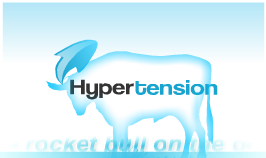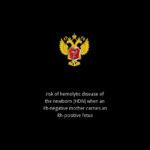Hypertension Causes Symptoms and Prevention
What is hypertension?
Hypertension (HBP, гипертензия, ارتفاع ضغط الدم) is a chronic medical condition characterized by abnormally high blood pressure, it is caused by a collection of pathological or non pathological disorders/diseases. If left untreated, hypertension can progress and cause serious complications.
What are the causes and risk factors of hypertension?
Numerous elements can influence your blood pressure and may contribute to hypertension, risk factors that may lead to hypertension include:[1][2][3]
- Metabolic syndrome and water mineral imbalance, having abnormal amounts of water and mineral salts (electrolytes) in the body (excess water, hyponatremia or decrease in serum sodium concentration < 136 mEq/L, etc.).
- Impaired kidney function, such as a complication of diabetes, Chronic kidney disease (CKD) or aging.
- Physical appearance and shape, whether you’re fat or skinny.
- Cardiovascular disorders, such as varicose veins, spider veins, etc.
- Hormonal homeostasis fluctuations and abnormal hormone levels
- Homeostasis negative feedback impairment
As you age, your resting heart rate increases anywhere between 15 and 20 beats per minute. This happens in the light of facts, because veins get stiffer as you age (losing elasticity). Moreover, As you grow older, plaque buildup narrows your arteries and makes them stiffer, and when that happens, your pulse goes up; However, the higher the pulse, the higher your chance of having a stroke, heart attack, heart failure, kidney disease, which, in turn, increases your chances of dying early. An increase in your pulse over time may be a signal of cardiovascular trouble ahead. Normal pulse at Rest:[1][4][5]
- Children from ages 1 to 6 have heart rates than range from 60 to 140 beats per minute.
- Children from ages 7 to 17 have heart rates than range from 70 to 100 beats per minute.
- Adults (age 18 and over) have heart rates than range from 60 to 100 beats per minute.[6]
About 1 out of every 3 adults in the USA has hypertension (high blood pressure).[7]
Risk factors for developing high blood pressure
What are the common risk factors that lead to hypertension?
You have a higher risk of developing hypertension if you have one or more of the following factors:
If you are an African American, you have a higher risk of developing hypertension.
If you are obese (fat or overweight), you have a higher chance for having hypertension, High triglyceride (fat) blood level can increase your chance of developing hypertension.[1][9]
Bad lifestyle habits, if you are lazy and dependable on others, if you snack on junk foods, or if you skip breakfast, etc. you have a higher chance for having hypertension
If you drink too much alcohol (drinking more than one drink a day for women and more than two beverages a day for men), heavy drinking can lead to increased risk of hypertension, avoid alcohol or reduce your alcohol consumption.
If you have a diet high in sodium, if you consume an excessive amount of salt in your food, you have a higher risk of developing hypertension.
If you have a family history of hypertension (genetic predisposition), if either your father or mother had hypertension, you have a higher risk of developing hypertension.
If you have diabetes mellitus.
If you smoke
Aging, the risk of hypertension increases as you age.[1][8]
Hypertension that by definition has no identifiable cause is called essential hypertension (primary hypertension or idiopathic hypertension).
Hypertension that is caused by an alternative restorative treatment or drug is called drug induced secondary hypertension. Risk factors that may lead to secondary hypertension include:
Chronic kidney disease (CKD)
Tumors of the adrenal glands (two endocrine glands located above the kidneys), these tumors secrete excess amounts of hormones; However, the symptoms will depend on the hormone that is being overproduced. Moreover, adrenal tumors may grow large and put pressure on nearby organs like the stomach. Pheochromocytoma and Conn’s syndrome are extremely common tumors of the adrenal glands.
Hyperparathyroidism
Pregnancy and preeclampsia (a complication in pregnancy characterized by hypertension, fluid retention and proteinuria).
Some drugs, for example oral contraceptives (birth control pills), diet pills, and headache painkillers (OTC pain relievers).
Renal artery stenosis (RAS – narrowing or blockage of one or both of the renal arteries that supply blood to the kidneys).
Symptoms
What are the early warning signs of high blood pressure?
In most cases, primary hypertension is asymptomatic due to cardiac compensation. For most patients, high blood pressure is discovered spontaneously, for an example when they have a spontaneous visit for annual insurance.
Common symptoms of hypertension include:
- Nervousness
- Chest pain, people with hypertension may have a pounding feeling in their chest or head.
- Lightheadedness, a feeling of lightheadedness or dizziness (feeling faint) is common in people with high blood pressure.
- Shortness of breath (breathing difficulty or dyspnoea), is the first symptom of pulmonary hypertension, and it is the most common reason for visiting a doctor.
- Fatigue and Tiredness
- Vision troubles (Macular Degeneration, blurred vision, Peripheral Vision Loss, etc.)
- Sweating
- Difficulty sleeping
- Facial flushing
What are the early warning signs of malignant hypertension?
Provided that you have a migraine (severe headache), dizziness with head pain (elevated intracranial pressure or ICP), perplexity, blurred vision, or nosebleeds, you are at high risk for malignant hypertension (a serious and potentially life-threatening hypertensive emergency).
Treatment
How to treat hypertension?
Changing your lifestyle can lower your blood pressure. Your doctor may recommend eating a healthy diet, exercising regularly, stopping smoking and maintaining a healthy weight.
What are the best medications to lower blood pressure?
Common medications used to treat high blood pressure include:
Thiazide diuretics or water pills, such as hydrochlorothiazide (Microzide), chlortalidone (INN/BAN) or chlorthalidone (USAN) are first line medications used to treat high blood pressure. These drugs help your body eliminate sodium and water, thus reducing blood volume.
Angiotensin-converting enzyme (ACE) inhibitors, such as lisinopril (Zestril), benazepril (Lotensin), captopril (Capoten), are also used to treat high blood pressure, especially in people with chronic kidney disease. ACE inhibitors are medications that dilate blood vessels by decreasing the production of angiotensin II, as they inhibit the activity of ACE (an enzyme).
Angiotensin II receptor blockers (ARBs), such as candesartan (Atacand), losartan (Cozaar), are medications used to dilate blood vessels. Dilation of arterial blood vessels decreases blood pressure. These medications are commonly used to treat hypertension, especially in people with chronic kidney disease
Calcium channel blockers, such as amlodipine (Norvasc), diltiazem (Cardizem, Tiazac), are medications that widen blood vessels by affecting the muscle cells in arterial walls. Calcium antagonists block calcium from entering the myocytes and blood vessel walls, and are commonly used to treat hypertension, especially in black people and elderly people
Renin inhibitors, such as Aliskiren (Tekturna) are also used to treat hypertension. However, you shouldn’t take aliskiren with ACE inhibitors or Angiotensin II receptor blockers.
Vasodilators, such as hydralazine and minoxidil, are medications that dilate blood vessels. They are used to prevent hypertension
Alpha blockers, such as doxazosin (Cardura), prazosin (Minipress)
Alpha-beta blockers, such as carvedilol (Coreg) and labetalol (Trandate)
Aldosterone antagonists, such as spironolactone (Aldactone) and eplerenone (Inspra)
How to treat hypertension naturally?
Lifestyle changes that can help you lose weight and lower your blood pressure include:
- Lose extra pounds, and getting into shape
- Exercise regularly to stay healthy, as exercise combats various health conditions and can help prevent excess weight gain
- Eat a healthy diet, the DASH Diet may help you lose weight and lower cholesterol and blood pressure
- Reduce sodium and sugar intake
- Reducing saturated fat to less than 5% of total calories, reduce your intake of saturated fats, trans fats, dietary cholesterol
- Reducing the amount of alcohol you drink
- Monitor your blood pressure
What supplements are best for high blood pressure?
Take supplements that may help lower your blood pressure and cholesterol, such as:
- Fish oil (omega-3 fatty acids)
- Fiber, such as blond psyllium and wheat bran
- Mineral salts, such as magnesium, calcium and potassium
- Folic acid
- Antioxidants, such as Rutin, Quercetin, Cocoa, L-arginine, Astaxanthin, or Coenzyme Q10 (CoQ10, ubiquinone, ubidecarenone)
- Vitamin E and Iron
- Garlic
Prevention
How to prevent high blood pressure?
Since there are no indications, individuals can improve coronary heart disease (CHD) and kidney disorders without knowing whether they have high blood pressure, for an example by maintaining a healthy lifestyle, and starting a sugar-free healthy diet, reduce total fat intake and avoid junk foods that contain trans and saturated fats.
References
Verified by: Dr.Diab (November 30, 2017)
Citation: Dr.Diab. (November 30, 2017). What is Hypertension? Causes Symptoms and Prevention. Medcoi Journal of Medicine, 25(2). urn:medcoi:article3110.














There are no comments yet
Or use one of these social networks